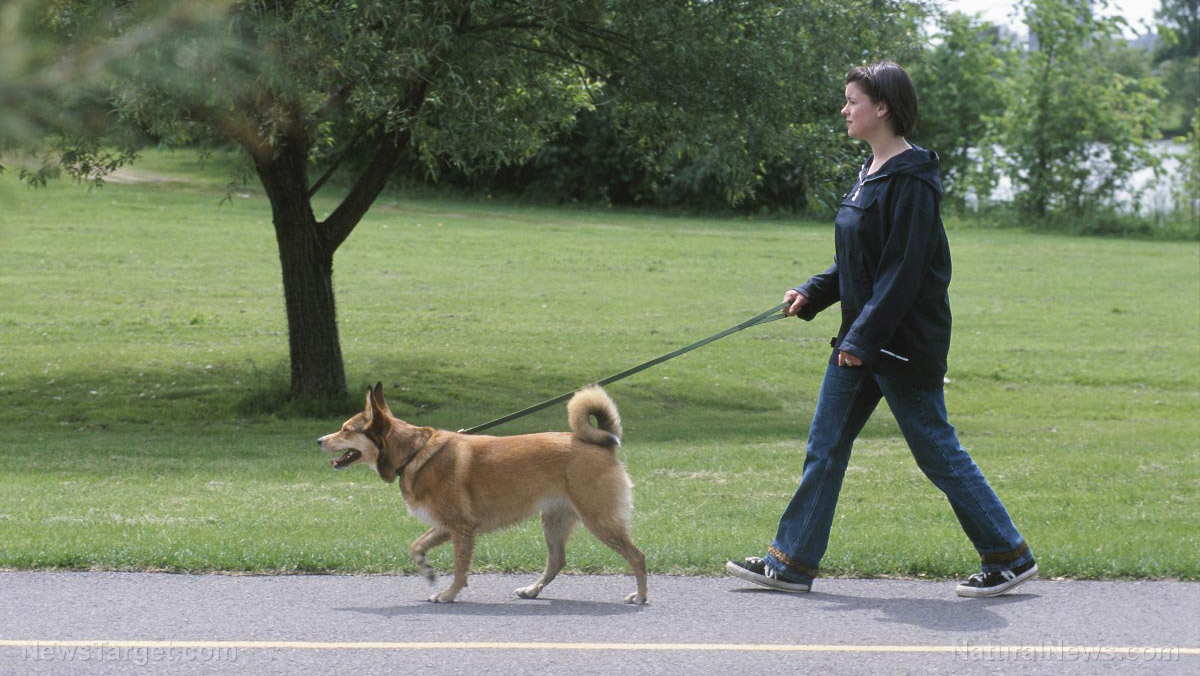Health and prepping: Why your physical fitness is an important aspect of your survival plan
10/18/2019 / By Zoey Sky

Prepping involves more than just your survival gear and a stockpile of supplies. When SHTF, being physically fit can help improve your chances of surviving. (h/t to TheOrganicPrepper.com)
Preppers should invest as much time in their physical fitness as in their preps. After all, you need to be strong enough to lift supplies or manage your garden. Who else is going to chop all that wood and gather water from your well?
You also need to be fit to carry a bug-out bag if you have to evacuate in an emergency. Like your survival skills, your physical fitness will serve you well when disaster strikes.
Walk your way to better health
Before you start any exercise program, consult your physician. If he gives you the go signal, get a nice pair of walking shoes and start walking.
Consider two factors to make the most of your walking program.
Don’t push yourself too hard. If you’re not physically active, you may suffer from delayed-onset muscle soreness (DOMS).
DOMS refers to muscle pain that begins after exercising. You may experience DOMS symptoms from 12 to 24 hours after a workout.
The pain hits its peak at least one to three days after you exercise, but the pain should gradually cease after this period. Symptoms of DOMS usually include:
- Muscle fatigue
- Muscles that are tender to the touch
- Reduced range of motion caused by pain and stiffness when moving
- Short-term loss of muscle strength
- Swelling in the affected muscles
Don’t slack off. If you give up 10 seconds after you feel like you’re about to run out of breath, you won’t get too far on your walking program.
Base your starting point on your current fitness level. If you’re mostly sedentary, start with a 30-minute daily walk.
Walk at a very comfortable pace for at least five minutes to warm up, then gradually speed up.
When you start walking faster, you should still be able to talk to someone else but not without a little bit of effort. Your heart rate will be elevated enough that your speech is limited to short answers.
If you can only manage one-word answers while you’re walking, you’re pushing yourself too hard. Slow down. Maintain a steady pace to eventually build your endurance. Keep walking at a slow pace while you catch your breath.
When there are only five minutes left before your walk is over, slow down again to let your body cool down.
Do this every day. As you get stronger and build your stamina, you can make your walking program more challenging by adding hills or obstacles. You can also gradually increase your speed or try brisk walking while carrying your bug-out bag.
Motivate yourself
If you’re not very fit, you may need some motivation.
- Walk with a friend. Walking with a friend can make the whole thing more fun. If you have a walking buddy, you can challenge each other or keep one other from canceling when you’re feeling lazy.
- Walk with your dog. Most dogs love being active. If you have dogs, walking with them will help improve your bond. You can also spend this time training them, which will be useful when SHTF.
- Listen to upbeat music. If you prefer to walk alone, you can boost your energy by listening to your favorite songs. Make a playlist of whatever gets you in the mood to walk. When walking while listening to music, use only one headphone so you can still pay attention to your surroundings.
It’s not enough to build your stockpile. You should also be fit enough to reach them or carry them while you’re walking to your bug-out location.
Regardless of your current fitness level, walking for 30 minutes daily will help improve your physical stamina.
No time for excuses
Preppers know that there’s no excuse for missing a day of preps. When SHTF, you won’t always get a warning.
You always need to be ready, and you do this by not making excuses. No one’s too busy to set aside 30 minutes every day to walk and be healthier. If you’re sick, take a break until you feel better.
If work or home life is really hectic, take two 15-minute walks every day. As long as you walk a total of 30 minutes daily, you’ll notice a big difference in your stamina.
Don’t feel disheartened when other joggers breeze past you at the park. You’re just getting started on your own fitness journey. You may not reach the level of an Olympic athlete, but you’re capable of improving.
Challenge yourself and keep walking. One day you’ll surprise yourself with how much you’ve improved.
Sources include:
Tagged Under: brisk walking, bug out, endurance, exercise, light exercise, off grid, physical exercise, physical fitness, preparedness, prepper, prepping, self-reliance, SHTF, slender, strength exercise, strength training, survival, survival skills, survivalist, walking
RECENT NEWS & ARTICLES
COPYRIGHT © 2017 WOMENS HEALTH NEWS



















